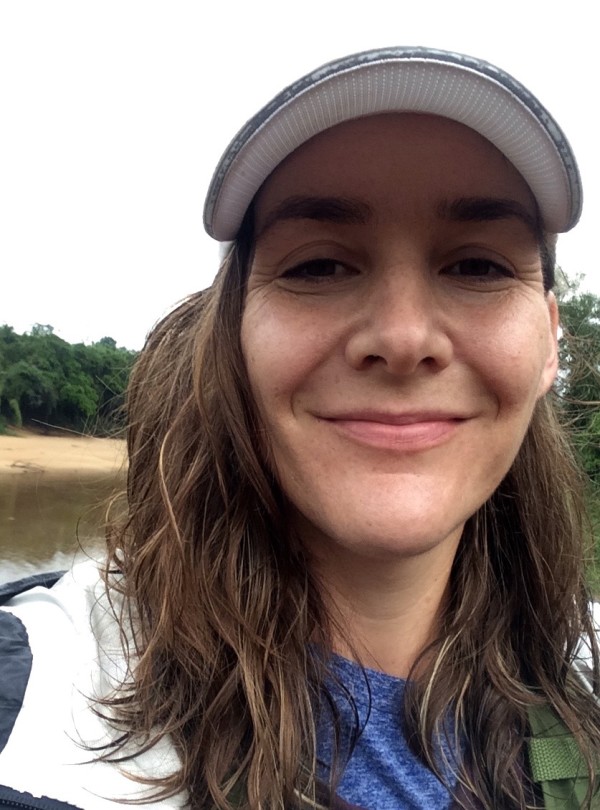Alison Macnaughton
About
 I am a PhD student at the University of Victoria (Geography). I have an undergraduate degree in Geography from the University of Victoria (2000), and a MA (Planning) from the University of British Columbia (2004). Since 2004, I have worked with World Fisheries Trust, a Canadian charity, developing and implementing inter-disciplinary projects that promote conservation and poverty reduction in small-scale fisheries in Latin America. These projects bring together institutional partners, researchers, field practitioners and fishers holding a wide range of expertise and interests to address complex development problems. I have been fortunate to work and learn together with many diverse groups, from biologists, nutritionists and lawyers studying food security and fishery policy in the Bolivian Amazon; to engineers, union leaders and doctors developing social technology for occupational health and safety among coastal shellfish harvesters in Northeast Brazil; and police, environmental managers, fishers, mining and hydro industry to monitor environmental impacts and improve respect for fishers’ rights in the Brazilian mid-west.
I am a PhD student at the University of Victoria (Geography). I have an undergraduate degree in Geography from the University of Victoria (2000), and a MA (Planning) from the University of British Columbia (2004). Since 2004, I have worked with World Fisheries Trust, a Canadian charity, developing and implementing inter-disciplinary projects that promote conservation and poverty reduction in small-scale fisheries in Latin America. These projects bring together institutional partners, researchers, field practitioners and fishers holding a wide range of expertise and interests to address complex development problems. I have been fortunate to work and learn together with many diverse groups, from biologists, nutritionists and lawyers studying food security and fishery policy in the Bolivian Amazon; to engineers, union leaders and doctors developing social technology for occupational health and safety among coastal shellfish harvesters in Northeast Brazil; and police, environmental managers, fishers, mining and hydro industry to monitor environmental impacts and improve respect for fishers’ rights in the Brazilian mid-west.
Place
Bolivia’s Northern Amazon (Pando and Beni Departments) is a global biodiversity hotspot, with a number of important Amazon tributaries, flooding forest, upland tropical forest and savannah, high species diversity and relatively intact ecosystems. Indigenous peoples of the region were largely displaced and exploited in the 19th and early 20th century by colonial activity, but now have recognition of traditional rights under the Law of Agricultural Reform (1996), which has enabled the creation of communal tenure arrangements designated as Original Community Territories (TCOs). Close to 10,000 people, including Takana, Cavineño, Chácobo, Pacahuara, and Esse-ejja groups, are now living in 4 TCOs that cover close to 1.5 million hectares in the region. Communities are mostly small and isolated, located close to rivers or lakes with limited access to regional urban centres, and fisheries based on abundant and diverse native fish fauna are a cornerstone of local subsistence and an important secondary source of income. However, illegal logging, fishing and other extractive activities pose a significant threat to the resource base, and high rates of poverty and food insecurity exacerbate local challenges.
Research
I am studying livelihoods and conservation in indigenous fisheries, considering human rights and multi-level governance perspectives. My research focuses on a relatively new fishery for a species known as paiche (Arapaima gigas) that was introduced to the Bolivian Amazon. I am examining the challenges and opportunities that indigenous communities are facing to put fishing rights into practice and benefit from commercial paiche fisheries. My work is also part of Peces para la Vida (Amazon Fish for Food) a multi-partner research project whose goal is to improve the contribution of fish to food security and poverty reduction, particularly among women, children and indigenous families in the Bolivian Amazon. Peces para la Vida is supported by the Canadian International Food Security Research Fund (CIFSRF), a program of Canada’s International Development Research Centre (IDRC).
Publications
- Macnaughton, A., Rainville, T.K., Coca, C. I., Ward, E., Wojciechowski, M.J. and Carolsfeld, J. (In press). Gender Transformative Approaches with Socially and Environmentally Vulnerable Groups: a case study of interdisciplinary interventions in indigenous fisheries of the Bolivian Amazon. In: Njuki, Jemimah, John R. Parkins, and Amy Kaler. Transforming Gender and Food Security in the Global South, Routledge and IDRC: Oxon, UK and Ottawa, Canada.
- Macnaughton, A., Carvajal-Vallejos, F.M., Argote, A., Rainville, T.K., Van Damme, P.A. and Carolsfeld, J. (2015). “Paiche reigns!” Species introduction and indigenous fisheries in the Bolivian Amazon. Journal of Maritime Studies. 14:11 – Open Access
- Argote, A., Van Damme, P.A., Macnaughton, A.E. & Carvajal-Vallejos, F.M. (2014). Indigenous Fisheries in the Bolivian Amazon: a case study of the communal indigenous territory Multiethnic II (Pando and Beni). (Spanish) In: MRE-MMAyA (Eds.) Línea de base sobre ecosistemas y recursos acuáticos. Cochabamba: Edit. INIA. p 137-151
- Carvajal-Vallejos, F.M., Macnaughton, A., Coca, C., Trujillo, S., Carolsfeld, J., & Van Damme, P.A. (2013). The introduction of Arapaima gigas in the Bolivian Amazon: impacts on fisheries, emerging value chains and perspectives for community-based management. (Portuguese). In: Ellen Sílvia Amaral Figueiredo (Ed.) Biology, Conservation and Management of Pirarucus in Pan-Amazonia. Tefé, Brazil.
- Salas, R., Macnaughton, A. E., Van Damme, P. A., Carolsfeld, J. (2013). The Bolivian Amazon in times of change: opportunities and challenges for artisanal fisheries. (Spanish). In: Luis Collardo, Edgardo Castro y Max Hidalgo (Eds). Towards the Managment of Fisheries in the Amazon Basin: Transboundary Perspectives. Lima: Instituto del Bien Común. p. 135-144.
- Macnaughton, A., Rocha, L.M., Carolsfeld, J, & Wojciechowski, M. J. (2010). Tools for Understanding the Complexities of Small-scale coastal fisheries economies in Northeastern Brazil: participatory value chain mapping and economic feasibility studies In: Proceedings of the Fifteenth Biennial Conference of the International Institute of Fisheries Economics & Trade, July 13-16, 2010, Montpellier, France: Economics of Fish Resources and Aquatic Ecosystems: Balancing Uses, Balancing Costs. Corvallis: IIFET.


